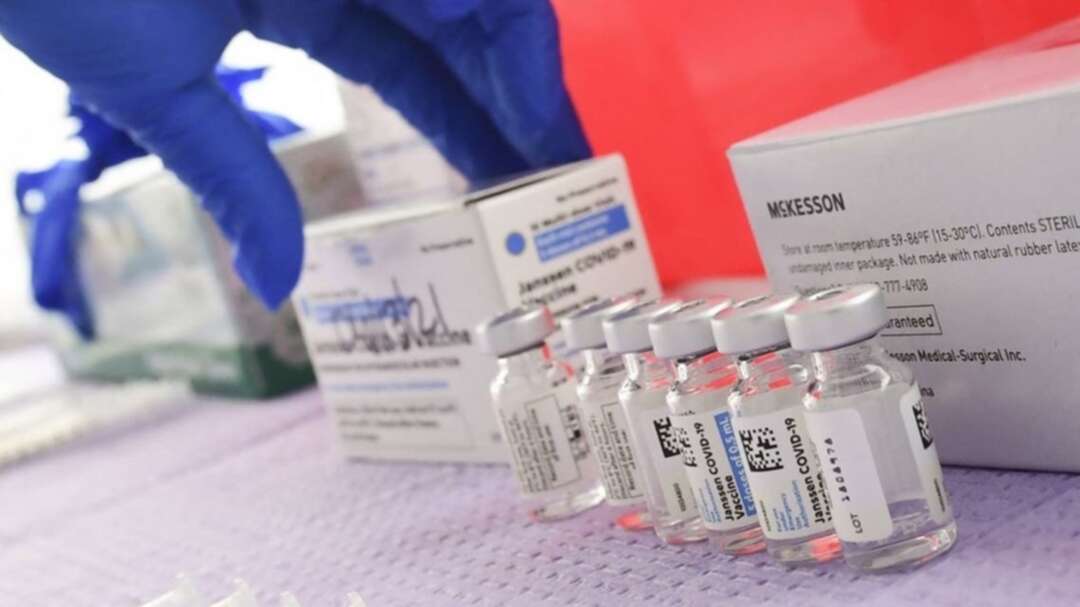-
EU drug regulator prepares to issue advice on J&J COVID-19 shot

Experts at the European Medicines Agency are preparing to present the conclusions of their investigation later on Tuesday into possible links between the Johnson & Johnson coronavirus vaccine and very rare cases of unusual clotting disorders detected in the US. EU drug
Last week, J&J halted its European rollout of its one-dose vaccine after the US Food and Drug Administration recommended officials pause its use while the rare blood clot cases are examined. Officials identified six cases of the highly unusual blood clots among nearly 7 million people who were immunized with the shot in the US.
J&J advised European governments to store their doses until the EU drug regulator issued guidance on their use; widespread use of the shot in Europe has not yet started.
The delay was a further blow to vaccination efforts in the European Union, which have been plagued by supply shortages, logistical problems and concerns over unusual blood clots also in a small number of people who received the AstraZeneca COVID-19 vaccine. Experts worry the temporary halt on J&J’s shot could further shake vaccine confidence and complicate worldwide COVID-19 immunization efforts.
Last week, South Africa suspended its use of the vaccine in the wake of the US pause, and countries including Italy, Romania, the Netherlands, Denmark and Croatia put their J&J doses into storage.
The blood clots linked to the J&J vaccine are occurring in unusual parts of the body, such as veins that drain blood from the brain. Those patients also have abnormally low levels of blood platelets, a condition normally linked to bleeding, not clotting.
With the AstraZeneca vaccine, scientists in Norway and Germany have suggested that some people are experiencing an abnormal immune system response, forming antibodies that attack their own platelets.
It’s not yet clear if there might be a similar mechanism with the J&J vaccine. But both the J&J and AstraZeneca vaccines, as well as a Russian COVID-19 vaccine and one from China, are made with the same technology. They train the immune system to recognize the spike protein that coats the coronavirus. To do that, they use a cold virus, called an adenovirus, to carry the spike gene into the body.
Earlier this month, the EU drug regulator said there was a “possible link” between the AstraZeneca shot and rare blood clots but said the benefits of vaccination far outweigh the risks of COVID-19. It noted the risk is less than the blood clot risk that healthy women face from birth control pills. EU drug
source: The Associated Press
Image source: AFP
You May Also Like
Popular Posts
Caricature
BENEFIT Sponsors BuildHer...
- April 23, 2025
BENEFIT, the Kingdom’s innovator and leading company in Fintech and electronic financial transactions service, has sponsored the BuildHer CityHack 2025 Hackathon, a two-day event spearheaded by the College of Engineering and Technology at the Royal University for Women (RUW).
Aimed at secondary school students, the event brought together a distinguished group of academic professionals and technology experts to mentor and inspire young participants.
More than 100 high school students from across the Kingdom of Bahrain took part in the hackathon, which featured an intensive programme of training workshops and hands-on sessions. These activities were tailored to enhance participants’ critical thinking, collaborative problem-solving, and team-building capabilities, while also encouraging the development of practical and sustainable solutions to contemporary challenges using modern technological tools.
BENEFIT’s Chief Executive Mr. Abdulwahed AlJanahi, commented: “Our support for this educational hackathon reflects our long-term strategic vision to nurture the talents of emerging national youth and empower the next generation of accomplished female leaders in technology. By fostering creativity and innovation, we aim to contribute meaningfully to Bahrain’s comprehensive development goals and align with the aspirations outlined in the Kingdom’s Vision 2030—an ambition in which BENEFIT plays a central role.”
Professor Riyadh Yousif Hamzah, President of the Royal University for Women, commented: “This initiative reflects our commitment to advancing women in STEM fields. We're cultivating a generation of creative, solution-driven female leaders who will drive national development. Our partnership with BENEFIT exemplifies the powerful synergy between academia and private sector in supporting educational innovation.”
Hanan Abdulla Hasan, Senior Manager, PR & Communication at BENEFIT, said: “We are honoured to collaborate with RUW in supporting this remarkable technology-focused event. It highlights our commitment to social responsibility, and our ongoing efforts to enhance the digital and innovation capabilities of young Bahraini women and foster their ability to harness technological tools in the service of a smarter, more sustainable future.”
For his part, Dr. Humam ElAgha, Acting Dean of the College of Engineering and Technology at the University, said: “BuildHer CityHack 2025 embodies our hands-on approach to education. By tackling real-world problems through creative thinking and sustainable solutions, we're preparing women to thrive in the knowledge economy – a cornerstone of the University's vision.”
opinion
Report
ads
Newsletter
Subscribe to our mailing list to get the new updates!






















